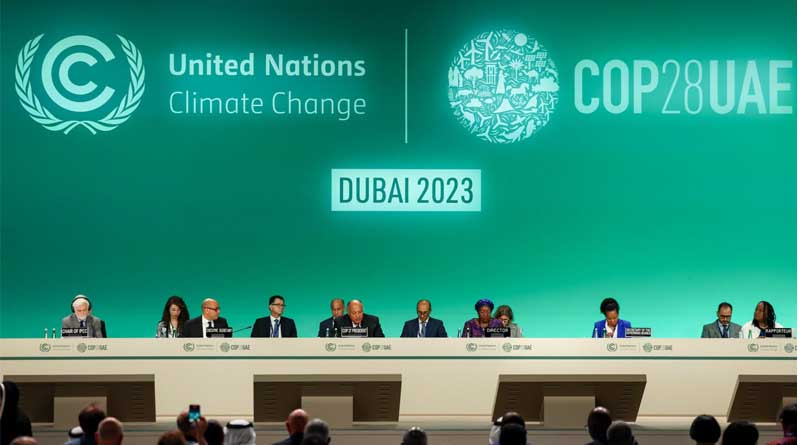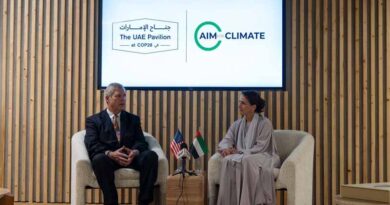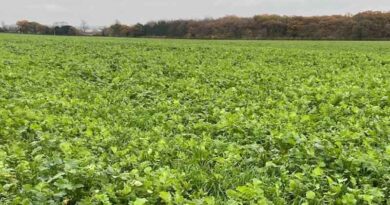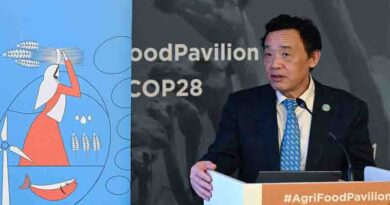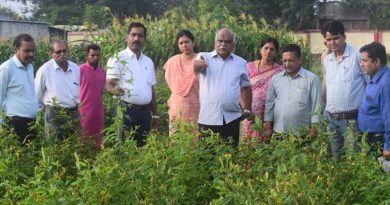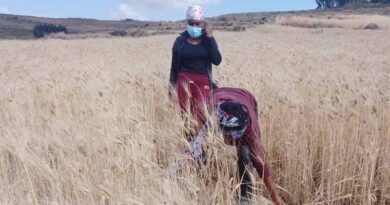Ambition, investment needed to deliver food and climate breakthroughs after historic COP28
COP28 climate talks put food and agriculture on the menu, but world’s largest publicly funded agricultural research organization says now it’s time for countries to pay the bill
15 December 2023, UAE: The world’s largest publicly funded agri-food research organization called for greater ambition after food and agriculture received unprecedented attention during the UN’s annual climate talks.
The summit began with 134 countries signing the UAE Declaration on Sustainable Agriculture, Resilient Food Systems and Climate Action. However, the final text on the first Global Stocktake made only one reference to food systems, even as an additional 18 countries signed the Declaration by the end of the conference.
“It has been heartening to see food systems, agriculture, and the needs of millions of smallholder farmers and consumers in low- and middle-income countries raised so high on the global stage, but much work remains to be done,” said Dr. Ismahane Elouafi, Executive Managing Director at CGIAR. “For example, to date, the Global Stocktake and Global Goals on Adaptation are falling short of the ambition we saw in the UAE Declaration,” she said.
Agriculture, forestry and land use generate around a third of greenhouse gas emissions, while the impact of climate change is devastating food production in low-income countries. An additional 189 million people will likely face hunger if the world reaches 2°C of warming.
However, only 7.4 percent of overseas development assistance was directed towards research into tackling the root causes of hunger and malnutrition in 2021. Smallholder farmers, most likely to experience food insecurity and climate vulnerability, received just 1.7 per cent of climate funding in 2018.
“COP28 was a watershed moment for recognition of food and agriculture within the climate agenda,” said Dr. Aditi Mukherji, Director of CGIAR’s climate change impact platform and contributing IPCC author. “We urgently need to transform our food, land and water systems to reduce emissions and help smallholder farmers adjust to the changing climate. But governments must take this momentum into the months and years ahead if we are to translate these commitments into action. Enshrining food security and rural livelihoods is a matter of climate justice to ensure no one is left behind.”
During the talks, several countries including the UAE, UK and US along with the Bill & Melinda Gates Foundation pledged US$890 million to support CGIAR’s new research portfolio. The commitments came as CGIAR launched a bid to raise US$4 billion to support ongoing research into innovations such as climate-resilient crop varieties and livestock breeds, including bio-fortified sweet potato, scuba rice and heat-tolerant cattle, and AI-enabled mobile phone apps that diagnose diseases in crops.
Dr. Elouafi added: “With science, we can produce more and better food with fewer resources; improve the lives and livelihoods of those living in poverty—particularly women and youth; enhance farming practices to protect soil and water resources; and reduce food loss and waste. Additionally, we can support innovative, regenerative farming practices that reduce deforestation and protect biodiversity.”
Also Read: High Sugar Prices Create Signs of Substitution Among US Manufacturers
(For Latest Agriculture News & Updates, follow Krishak Jagat on Google News)

